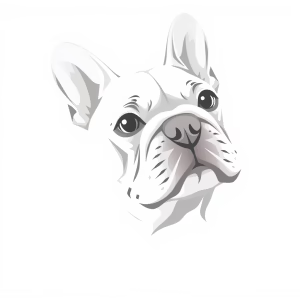5 Must-Know Allergy Facts for French Bulldog Care
French Bulldogs are one of the most popular dog breeds in the world. They are small, cute, and loving dogs that make great companions. However, French Bulldogs are also known for having health problems, and allergies are one of the most common issues.
Understanding the causes, symptoms, and treatment of allergies in French Bulldogs is important for keeping your dog happy and healthy.
When Do Allergies Start?
Allergies in French Bulldogs can start at any age. Some puppies may show signs of allergies very early, even in the first few months. But in most cases, allergies are more noticeable between the ages of 1 and 3 years.
Why? Because the dog’s immune system is more active, and the dog has had more time to be exposed to different allergens like food, dust, or pollen.
If your Frenchie is constantly scratching or licking, or if their skin is red and irritated, it may be time to check for allergies.
How Are Allergies Diagnosed?
Diagnosing allergies can take time. A veterinarian will usually start by asking questions about the dog’s diet, living environment, and daily routine.
One method is the elimination diet, where you change your dog’s food to something simple, like a special protein and carb source, and see if symptoms improve. Another method is allergy testing, which includes skin tests or blood tests.
These tests are usually more accurate if the dog is over one year old https://jiminys.com/blogs/benefits/a-complete-guide-to-french-bulldog-allergies
Common Allergy Triggers in French Bulldogs
French Bulldogs can be allergic to many things, including:
- Food allergies – Common triggers include chicken, beef, dairy, wheat, soy, and corn.
- Environmental allergies – Dust mites, pollen, mold, grass, and household cleaners.
- Contact allergies – Reactions to plastic, certain fabrics, shampoos, or even laundry detergents.
- Insect bites – Flea bites can cause strong allergic reactions.
- Medications or vaccines – In some rare cases, dogs may be allergic to certain drugs or vaccine ingredients.
Signs and Symptoms of Allergies
It’s important to recognize the signs of allergies in your French Bulldog. Here are the most common symptoms:
- Constant scratching or licking, especially the paws
- Red or irritated skin
- Hair loss
- Ear infections
- Watery eyes or sneezing
- Vomiting or diarrhea (if the allergy is food-related)
- Restlessness or behavioral changes
If you notice any of these signs, talk to your vet as soon as possible. Many symptoms of allergies are similar to other health problems, so professional help is needed for a correct diagnosis.

How to Treat Allergies in French Bulldogs
The most important part of treatment is finding the cause of the allergy and avoiding it. Once the allergen is found, your vet may suggest one or more of these treatments:
- Change in diet – Try hypoallergenic or limited-ingredient dog food.
- Medications – Antihistamines, steroids, or allergy-specific medicines like Apoquel.
- Special shampoos – Help reduce itching and calm irritated skin.
- Supplements – Omega-3 and omega-6 fatty acids can support skin health.
- Probiotics – These can help with digestion and overall immune function.
- Immunotherapy – Allergy shots or drops that help the dog build resistance to allergens over time.
Learn more about dog allergy treatment on the American Kennel Club website.
YOUTUBE – Merle Frenchie Reactions
Conclusion
French Bulldogs are amazing dogs, but they often suffer from allergies. Luckily, most allergies can be managed with the right care.
By learning to recognize the signs, working with your vet, and making smart changes to your dog’s diet and lifestyle, you can help your Frenchie feel much better.
Regular check-ups and attention to your dog’s skin, ears, and digestion will also help prevent problems before they get worse.
Taking action early is the best way to keep your French Bulldog comfortable and healthy for years to come.
🐶 Frequently Asked Questions (FAQ)
What are the most common allergies in French Bulldogs?
French Bulldogs commonly suffer from food allergies, environmental allergies (like pollen and dust mites), contact allergies, and insect bites. Chicken, beef, grains, and dairy are some of the most frequent food triggers.
How can I tell if my French Bulldog has allergies?
Signs include frequent scratching, red or irritated skin, ear infections, excessive licking, hair loss, or digestive issues like vomiting and diarrhea. A vet can confirm the diagnosis through testing.
Can allergies in French Bulldogs be cured?
Allergies can’t be completely cured, but they can be managed effectively. This includes diet changes, allergy testing, medication, and avoiding known triggers.
What food is best for French Bulldogs with allergies?
Hypoallergenic dog food or limited ingredient diets are usually best. Look for formulas that avoid common allergens like chicken, grains, or artificial additives.
Should I take my dog to the vet if I suspect allergies?
Yes. A veterinarian can help determine the cause of symptoms and provide a treatment plan that’s safe and effective for your dog.

